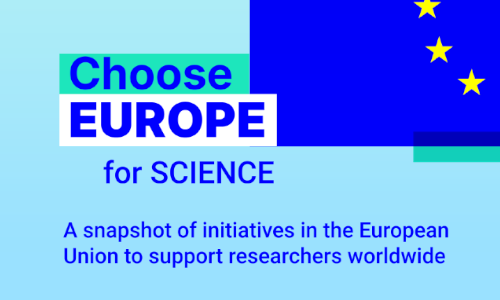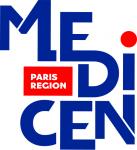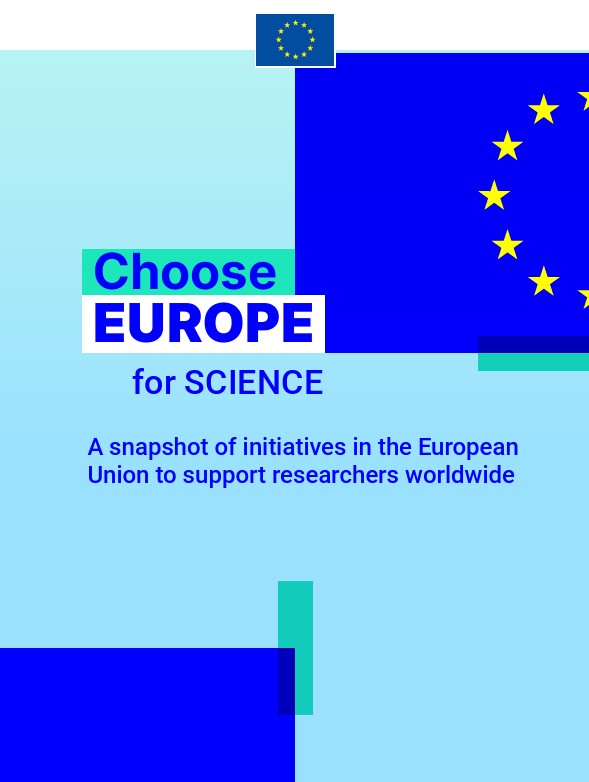Choose Europe for Science: European initiative to attract international scientific talents
Launched by the European Commission in May 2025, the “Choose Europe for Science” initiative aims to make Europe more attractive to international researchers. Supported by the 27 member states, it is based on a set of ambitious, coordinated measures designed to make the European research area open, competitive and stable.

A strategic objective: to make Europe a world-class scientific hub
Attractive funding and tailored programs
A collective boost by all Member States
Next steps and upcoming opportunities
A strategic objective: to make Europe a world-class scientific hub
With “Choose Europe for Science”, the European Union has a clear ambition: to become the preferred destination for researchers from all over the world. This strategy is set in the face of geopolitical and economic changes, which are affecting research systems in many countries, notably with rising political instability, attacks on academic freedom and budget cuts.
Europe aims to offer a stable environment supportive for long-term research, with a strong commitment to scientific independence and freedom of intellectual exploration. This commitment to global positioning also involves the promotion of :
- the diversity of European systems;
- the richness of their scientific ecosystems;
- and the quality of life offered to researchers and their families.
Attractive funding and tailored programs
To support this ambition, the European Commission has released an initial envelope of 500 million euros for the period 2025-2027. In addition, France has pledged 100 million euros in national contributions. Among the flagship schemes:
- "Super Grants" funding ambitious research projects over periods of up to 7 years, offering visibility and security rarely matched in other parts of the world.
- the “MSCA Choose Europe for Science” pilot program, developed as part of the Marie Skłodowska-Curie Actions. It will enable European institutions to recruit postdoctoral researchers on long-term contracts, with EU co-funding for the first years.
In both cases, the objective is to offer long-term career perspectives to the talents recruited, while reinforcing European scientific excellence.
A collective boost by all member states
The initiative is based on the collective mobilization of the 27 member states of the European Union, who are invited to develop their own national versions of the program.
The EURAXESS platform plays a central role by centralizing:
- job offers;
- calls for proposals;
- funding schemes;
- and practical information for international researchers..
In this way, each country can enhance its scientific, linguistic and cultural specificities.
In France, the “Choose France for Science” program was launched in parallel, with a particular focus on strategic sectors such as healthcare, climate, artificial intelligence, energy and quantum technologies.
This common framework allows us to combine our efforts and offer researchers a wide range of destinations to fit their projects.
Next steps and upcoming opportunities
Academic institutions, research centers and laboratories are invited to start preparing now, by identifying priority themes, building up their teams and devising strategies for welcoming international researchers.
For young researchers, particularly those faced with deteriorating scientific contexts in their home countries, this initiative represents an unprecedented opportunity to carry out their work in a stable, inclusive environment geared towards excellence.
For more information...
Get ABG’s monthly newsletters including news, job offers, grants & fellowships and a selection of relevant events…
Discover our members
 Généthon
Généthon  Medicen Paris Region
Medicen Paris Region  Institut Sup'biotech de Paris
Institut Sup'biotech de Paris  Servier
Servier  Aérocentre, Pôle d'excellence régional
Aérocentre, Pôle d'excellence régional  ONERA - The French Aerospace Lab
ONERA - The French Aerospace Lab  TotalEnergies
TotalEnergies  Nokia Bell Labs France
Nokia Bell Labs France  ANRT
ANRT  ADEME
ADEME  Tecknowmetrix
Tecknowmetrix  ASNR - Autorité de sûreté nucléaire et de radioprotection - Siège
ASNR - Autorité de sûreté nucléaire et de radioprotection - Siège  Nantes Université
Nantes Université  Laboratoire National de Métrologie et d'Essais - LNE
Laboratoire National de Métrologie et d'Essais - LNE  SUEZ
SUEZ  Ifremer
Ifremer  Groupe AFNOR - Association française de normalisation
Groupe AFNOR - Association française de normalisation

